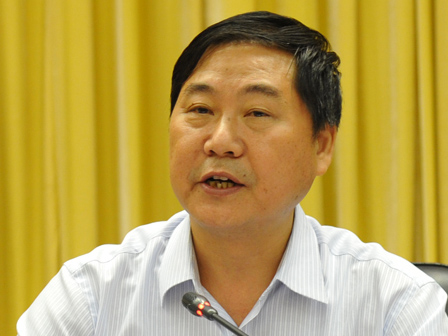XU JIANFENG: Fostering proper concept of wealth essential to property protection
 The CPC Central Committee and the State Council recently promulgated the Opinion on Improving the Property Right Protection System and Protecting Property in Accordance with Law. Systematically elaborating property right protection policies, the document reiterates that property rights in the private sector are as inviolable as those of the public sector. It advocates equal, comprehensive and law-based protection as well as hard work and entrepreneurship, fostering a favorable social atmosphere for property protection.
The CPC Central Committee and the State Council recently promulgated the Opinion on Improving the Property Right Protection System and Protecting Property in Accordance with Law. Systematically elaborating property right protection policies, the document reiterates that property rights in the private sector are as inviolable as those of the public sector. It advocates equal, comprehensive and law-based protection as well as hard work and entrepreneurship, fostering a favorable social atmosphere for property protection.
Property rights in essence are the legal identification of wealth. To create a favorable social atmosphere for respecting and protecting property, it is primarily important to foster a concept of wealth suited to the socialist market economy.
It should be recognized that Chinese people’s concept of wealth has changed dramatically after more than 30 years of reform and opening-up. However, due to traditional ethical ideas about wealth and practical issues like inequality, there are still prejudices against wealth, especially against entrepreneurs and those who got rich earlier.
For example, some hold that all businessmen are dishonest. They view entrepreneurs’ profit motive as antagonistic to public interests and regard wealth acquired by businessmen as dirty money. Some maintain that the rich are heartless, perceiving a negative correlation between the amount of wealth and morality.
Such ideas do not nurture a stable sense of security about wealth and are unfavorable to the sustainable, healthy development of the socialist market economy.
In the model of socialist market economy, entrepreneurs are without doubt seeking personal gains subjectively, but objectively they are satisfying public needs. Endowed by the market economy, consumer rights can, to a certain degree, guide entrepreneurs to balance private and public interests because only when they create value for society can they accumulate wealth for themselves.
In turn, the more value they create, the more returns they will gain from the market, and they will accumulate more wealth, forming a positive incentive mechanism. Practices of reform and opening-up have proven that wealth accumulation not only brings a more affluent material life, but also a better mental outlook.
Although some businessmen exemplify various moral problems amid socioeconomic development, the Chinese people as a whole are becoming increasingly moral. We shouldn’t negate the wealth creation of the entire entrepreneurial group because of individual profit-seeking misconduct. The right thing to do is to prevent and combat illegal businesses, unfair competition and consumer right infringement by improving market economy rules and social moral standards.
In China, the basic economic system of keeping public ownership as the mainstay of the economy and allowing diverse forms of ownership to develop side by side is improving constantly, making the private sector a vital force for the growth of social productivity. However, in terms of property protection, public ownership is placed above private economy to varying degrees, raising concerns among private entrepreneurs about property protection. To some extent, this has discouraged private investments and cannot be divorced from improper wealth perspectives.
To encourage the implementation of legal rules concerning fair property protection, it is crucial to eliminate incorrect concepts of wealth, bring into being wealth ethics consistent with the requirement of the socialist market economy, cultivate respect of wealth and wealth creation, strengthen people’s sense of security about wealth and create more wealth.
Xu Jianfeng is a research fellow from Southwest University of Political Science and Law in Chongqing Municipality.

 PRINT
PRINT CLOSE
CLOSE